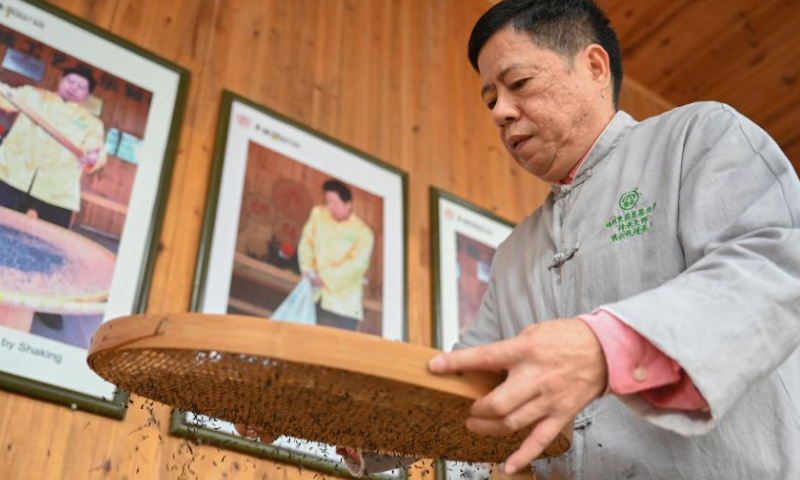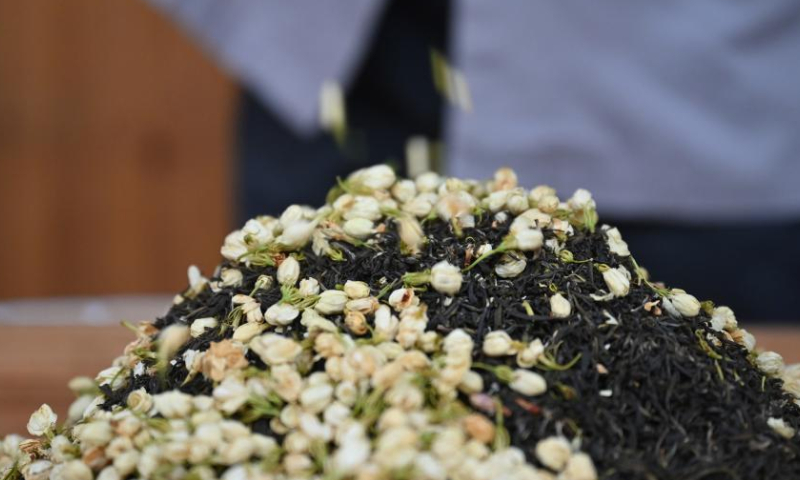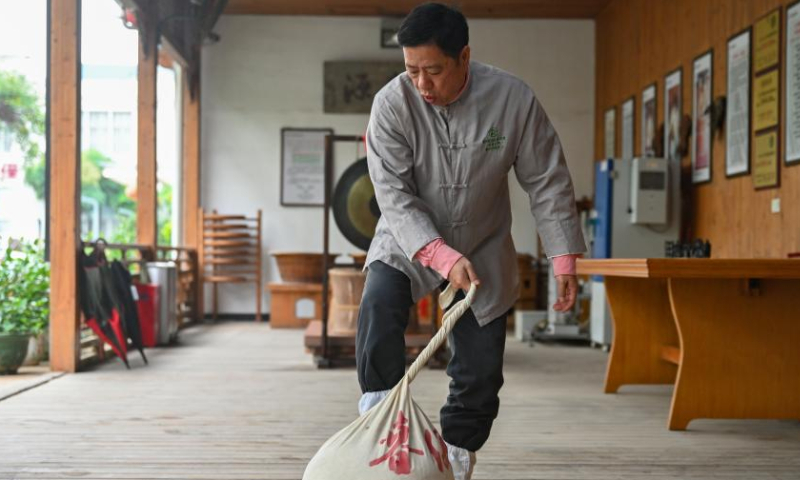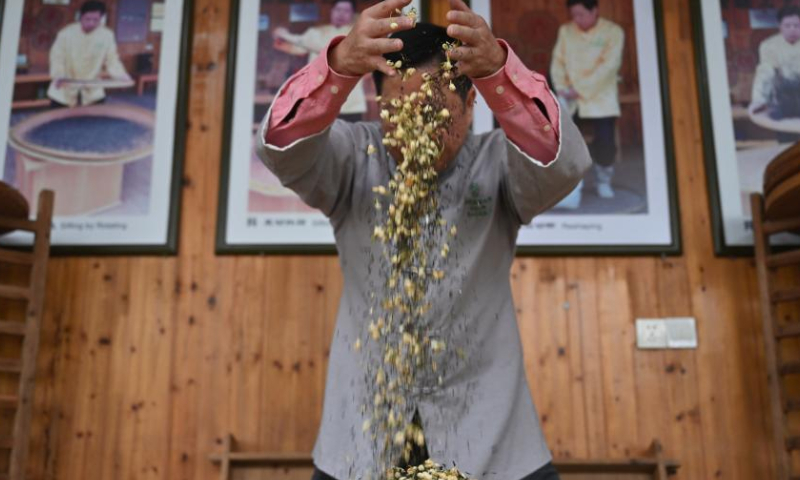
Fu Tianfu, a master of tea-scenting techniques, selects tea leaves with a special sifter at a tea workshop in Fuzhou, southeast China's Fujian Province, on Dec. 16, 2022. Fuzhou Jasmine tea scenting techniques have state-level intangible cultural heritage status in China. Jasmine tea is tea scented with the aroma of jasmine blossoms and typically has green tea as its base. The hot and humid climate and the red soil in east China's Fujian Province provide favorable conditions for jasmine and tea plants to thrive, becoming the high-quality ingredients that are needed for jasmine tea. (Xinhua/Zhou Yi)

Fu Tianfu, a master of tea-scenting techniques, repetitively scents tea leaves with jasmine buds at a tea workshop in Fuzhou, southeast China's Fujian Province, on Dec. 16, 2022. Fuzhou Jasmine tea scenting techniques have state-level intangible cultural heritage status in China. Jasmine tea is tea scented with the aroma of jasmine blossoms and typically has green tea as its base. The hot and humid climate and the red soil in east China's Fujian Province provide favorable conditions for jasmine and tea plants to thrive, becoming the high-quality ingredients that are needed for jasmine tea. (Xinhua/Zhou Yi)

Fu Tianfu, a master of tea-scenting techniques, processes a bag of tea leaves by gently treading at a tea workshop in Fuzhou, southeast China's Fujian Province, on Dec. 16, 2022. Fuzhou Jasmine tea scenting techniques have state-level intangible cultural heritage status in China. Jasmine tea is tea scented with the aroma of jasmine blossoms and typically has green tea as its base. The hot and humid climate and the red soil in east China's Fujian Province provide favorable conditions for jasmine and tea plants to thrive, becoming the high-quality ingredients that are needed for jasmine tea. (Xinhua/Zhou Yi)

Fu Tianfu, a master of tea-scenting techniques, scents tea leaves with jasmine buds at a tea workshop in Fuzhou, southeast China's Fujian Province, on Dec. 16, 2022. Fuzhou Jasmine tea scenting techniques have state-level intangible cultural heritage status in China. Jasmine tea is tea scented with the aroma of jasmine blossoms and typically has green tea as its base. The hot and humid climate and the red soil in east China's Fujian Province provide favorable conditions for jasmine and tea plants to thrive, becoming the high-quality ingredients that are needed for jasmine tea. (Xinhua/Zhou Yi)
